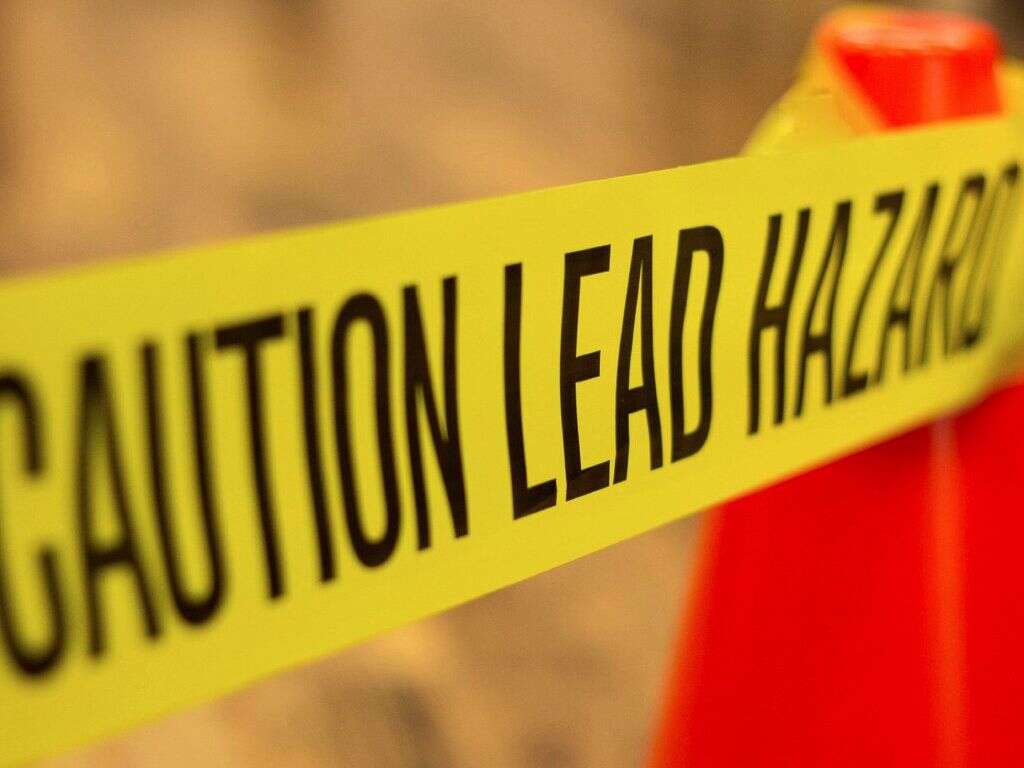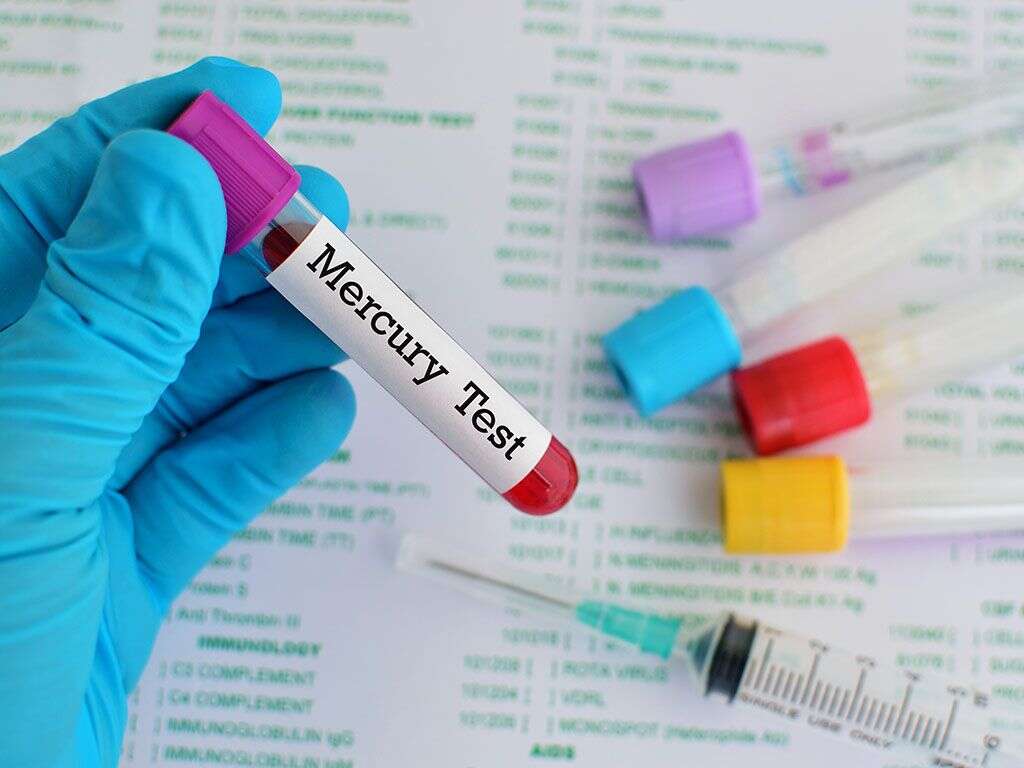10 Symptoms of Lead Poisoning
Lead is a very useful metal. Its soft, malleable nature makes it suitable for lining roofs to keep the rain out of homes and also in pipes to carry water. In fact, it was commonly used as a material to make pipes that transport our drinking water and also in drinking vessels such as tankards. Little did we know at the time that this was quite dangerous.
Lead is toxic and lead poisoning is potentially very dangerous 1https://en.wikipedia.org/wiki/Lead_poisoning. It is not as common now as we have taken steps to prevent dangerous lead exposure. But unfortunately, some people fall ill. Here is a look at some of the symptoms that are caused by lead poisoning.

Symptom #1: Cardiovascular Problems
Lead is heavy. This means it is only reasonable to think that the blood will also become heavier when lead is present, and this is exactly what happens. This can have a serious impact on the patient’s blood pressure and on the flow of blood in general. As a result, cardiovascular problems are one symptom that the patient may have lead poisoning.
The presence of lead in the bloodstream is also likely to cause damage to the heart as it becomes congested with the metal. This damage has the potential to lead to some very serious complications that can pose a very real threat to the patient’s life.

Symptom #2: Infertility
When a toxin manages to gain entry into the body, it could potentially move its way throughout the body quite rapidly. Such toxins might affect any part of the body and this includes the reproductive organs. If lead is present in the reproductive organs then it can cause real damage, causing the patient to become infertile.
The patient will find that their libido decreases in general, but tests will show they are infertile. The effects of this are permanent, meaning the patient will remain infertile even once the lead poisoning has been overcome.

Symptom #3: Stunted Development
The most important part of a person’s development occurs when they are young. If they are not able to develop as they should at the right time, then this can lead to them being underdeveloped physically in later life. This means that if young people develop lead poisoning, it could impact them for the rest of their lives.
A child’s development is gradual, meaning that we are unlikely to notice slowed development for a while. If you do think that your child is not developing as they should, you should consult a doctor as soon as possible. If lead poisoning is diagnosed, then medical experts can begin treatment to limit the impact on your child’s life.

Symptom #4: Irritability
It can be difficult not to become irritated at times. We can become irritable when we are ill, tired or hungry, or maybe a particular person is annoying us considerably. We will usually feel just fine again once the issue has been overcome, but irritability can also be a sign of a more serious underlying problem.
The various symptoms caused by lead poisoning can cause the patient to become quite irritable, and outbursts may become more frequent. If they have been diagnosed it can be important to try and remain patient with them as their irritability is not their fault. If they have not been diagnosed, it could be a good idea to see a doctor to try and see if there is an underlying problem.

Symptom #5: Anemia
Anemia is a condition where your blood has insufficient hemoglobin and/or red blood cells. These are responsible for carrying oxygen around the body so when they are insufficient, so is the supply of oxygen. This can lead to a range of symptoms including fatigue and bluish skin. It can be very serious if left untreated.
Lead poisoning decreases the amount of hemoglobin in the bloodstream, making anemia a common symptom. While it is not immediately life-threatening, anemia can lead to more dangerous conditions so it should be taken very seriously. If you are experiencing signs of anemia then you should make an appointment to see a doctor regardless of the suspected underlying cause.

Symptom #6: Pregnancy Problems
As the fetus is gestating in its mother’s womb, it is largely protected from the outside world. It is even protected from pathogens by the mother’s immune system, keeping it relatively safe from disease. Unfortunately, though, the mother is unable to provide such protection to the fetus from lead poisoning.
If the mother has lead poisoning then the fetus will also be exposed to the poisoning from the nutrients it receives from its mother. This can be very harmful and can potentially be fatal to the fetus. Even if the fetus does survive, there is a good chance it will have permanent disabilities as a result of the poisoning.

Symptom #7: Difficulty Concentrating
Depending on what we are trying to do, it can be difficult to concentrate at times. Maybe the task is boring to us or perhaps it is just too difficult, meaning we are likely to switch off and give our attention to something else instead. If you develop lead poisoning, though, concentrating can become much harder to do overall.
Even focusing on simple tasks can become difficult, making it increasingly difficult for the patient to look after themselves. This can lead to a significant decrease in their quality of life as they will become increasingly dependant on others to do things for them.

Symptom #8: Stunted Brain Development
Our brains undergo most of their development when we are still young. If the development of the brain is held back, the person’s IQ and other cognitive abilities can be impaired, having a detrimental effect on their adult lives. Stunted brain development is a very real risk in children with lead poisoning.
As the brain tries to grow, the presence of lead in the system can hamper this growth. This means it will not have the same impact on adults with fully developed brains but it can be devastating to the development of children’s brains. Lead poisoning is not the only thing that can lead to stunted brain development and we should do all we can to allow a child’s brain to grow.

Symptom #9: Indigestion
Our digestive systems are quite sensitive and can be affected by a range of causes. This usually manifests itself with stomach pains and diarrhea which can range from being mildly uncomfortable to potentially dangerous. Lead poisoning can affect the digestive system and indigestion is a symptom of such poisoning.
In addition to pain and diarrhea, patients can also experience acid reflux and stomach ulcers. As the digestive system’s ability to absorb food is impaired, the patient will also get less nourishment from their meals. This can also lead to deficiencies in vitamins and other nutrients which can exacerbate already existing problems.

Symptom #10: Encephalopathy
Encephalopathy is a blanket term that refers to improper functioning of the brain. It can have a wide range of causes and many symptoms. When caused by lead poisoning specifically, it is known as toxic-metabolic encephalopathy, and symptoms include increased heart rate, hyperthermia, confusion, increased blood pressure and sweating. In severe cases it can lead to a coma.
Encephalopathy can cause permanent damage to the brain, but not always. Many patients will make a full recovery from the condition once the lead has been removed from their system. Any condition involving the central nervous system should be taken very seriously, so seek emergency medical attention in the case of associated symptoms.









